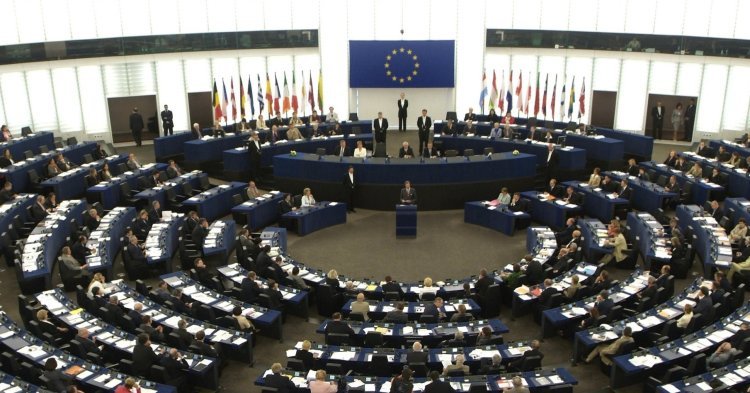Nowadays, the fight for a fully-fledged EU foreign policy is taking place between the European Parliament (EP) and the Council of the European Union (hereafter the Council), with the European Commission and the European External Action Service (EEAS) in the middle. This struggle for competency, and therefore legitimacy, is damaging the efficiency of the EU’s actions abroad.
Far from attributing the responsibility of defining and enforcing a European foreign policy to one institution or another, making full use of existing proceedings, attributions, and opportunities could prove decisive in protecting European interests and citizens abroad.
The European Parliament’s involvement in the Common Foreign and Security Policy
The role of the EP in CFSP matters has been widely studied by scholars who acknowledged the EP’s useful contribution to European diplomacy. However, in the so-called “Eurobubble”, the EP does not benefit from the same appreciation due to its lack of formal competencies in CFSP.
Nowadays, the Parliament only benefits from the right of information and consultation by the High Representative and Vice President of the Commission (HRVP), with respect to the Treaty on the Functioning of the European Union (TFEU) and the 2010 Declaration of Political Accountability. The Parliament asserts these rights in plenary debates, committee sessions and other smaller and informal gatherings.
The European Parliament’s Potential
The EP’s status should be considered as a source of opportunities since the assembly is neither bound to, nor responsible for, CFSP decisions. In other words, the EP can make full use of its influence and agenda-setting powers : parliamentary resolutions shed light on international crises and human rights violations around the globe and force the Commission and the Council to take matters into their own hands.
In a 2018 article published in the Journal of Common Market Studies, Daan Fonck, a researcher from the Catholic University of Leuven (KUL), made a strong case for the recognition of the EP’s diplomatic power based on its involvement in the 2015-2017 North Macedonia’s political crisis. He identified four resources enabling the Parliament to play a real diplomatic role : institutional capacity, legitimacy, knowledge, and access. These four resources materialise in committee and delegation meetings, informal briefings, and parliamentary visits abroad.
Through the EP elections, members of the European Parliaments (MEPs) acquire legitimacy as European people’s representatives. However, the attribution of seats in committees is not always related to MEPs’ field of expertise. They eventually acquire knowledge on the different issues through committee and delegation meetings. In this regard, the cooperation between the EP and the EEAS is crucial. In the 2010 Declaration on Political Accountability, the HRVP committed to support the EP in his activities, notably by providing experts to either brief or exchange views with the MEPs. This task is today carried out by a team of high-level diplomats and European civil servants, reporting directly to the EEAS Secretary General.
In addition to the numerous Brussels- (or Strasbourg-) based meetings, MEPs can reinforce their expertise thanks to parliamentary visits abroad. These trips offer multiple diplomatic opportunities. On the one hand, MEPs gain access to important political actors and can share their observations once back in Brussels. On the other hand, MEPs can convey unofficial positions or exchange more openly on certain issues, which in return can reinforce relations with allies or facilitate dialogue with other states. In doing so, the MEPs complement the work of EU delegations abroad.
The European Parliament as part of the EU track-two diplomacy, disruptor or partner ?
The EP’s impact on EU foreign policy depends, however, on the position it decides to adopt : that of the disruptor or that of the partner.
Adopting the position of partners in diplomacy, MEPs would fully take advantage of the contradiction between their representative status and non-responsibility for EU foreign policy. MEPs contribution to European track-“one and a half” diplomacy could then prove decisive. It offers a compromise between track-one and track-two diplomacy, which covers respectively all official and unofficial contacts. The “one and a half” track better reflects the EP’s hybrid status on CFSP matters.
On the opposite side, if the MEPs decide to play the disruptor card, it can harm the Commission’s actions abroad. Indeed, thanks to its legitimacy, the Parliament has acquired a strong symbolic power which allows it to put foreign governments in delicate situations which in return could affect the work of the Commission and EEAS.
An article previously published on the New Federalist (TNF) website provides a good example of the EP following its own agenda and acting as a disruptor in the case of the Indian Citizenship Amendment Act. Following the adoption by the Indian parliament of the Citizenship Amendment Act, the EP decided to adopt a resolution raising human rights concerns, which was then withdrawn the following day and moved to the March plenary, or after the EU-India Summit of March 13. The initial resolution raised eyebrows in India, and the EP found itself disavowed by other European institutions and governments.
From a diplomatic point of view only, the intervention of the European Parliament was problematic. First, the Citizenship Amendment Act is an internal matter, as pointed out by French diplomatic sources cited in the TNF article. The EP’s initiative was therefore perceived as an interference by both the Indian and European governments. Second, human rights concerns are better addressed in bilateral meetings and the organisation of the EU-India Summit was an opportunity to discuss such matters. All in all, by putting a spotlight on the issue of citizenship, the Parliament threatened both its legitimacy and the EU’s possibility to address this issue with the Indian Prime Minister. Needless to say, it also failed to influence the legal process in India.
The objective ? One message, two messengers
This example leads to an important conclusion : diplomatic and parliamentary activities need close coordination if the EU is to achieve successful results.
Those familiar with inter-institutional relations will know that such cooperation mechanisms already exist, or at least their structures exist. However, the mindset proves more difficult to foster. On the one hand, MEPs could make use of their hybrid status to informally reinforce EEAS diplomatic actions abroad, making parliamentary diplomacy a key component of the EU foreign policy toolbox. The Committee on Foreign Affairs (AFET) could also make full use of its exchange of views to address both the EEAS and the HRVP in an institutional capacity. Additionally, foreign policy activities in the Parliament should be rethought to further empower AFET. Indeed, by reinforcing the Committee’s prerogative in interinstitutional relations and reducing the time dedicated to foreign policy debates in plenary sessions, which have questionable added value, the EP could clarify the repartition of responsibilities among, and the functions of, its bodies. It could also provide the Committee members with enhanced duties and stimulate both the attendance and the activities of AFET.
On the other hand, the Parliament’s perspective could be better integrated in shaping European foreign policy. The more relevance the EP’s activities will acquire, the greater its legitimacy will be and therefore, the more it will be considered by European policy makers.
Finally, there needs to be a balance. It would neither be realistic nor desirable for the Parliament to completely abandon its autonomy and democratic role and surrender to the executive power. Therefore, informal coordination between European diplomacy and the Parliament should be strengthened to provide the Parliament with the recognition it deserves and the EEAS the trust it merits.


Suivre les commentaires : |
|
